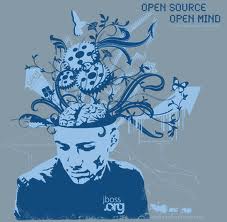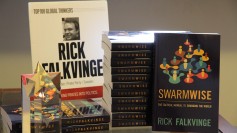 Teen Says His Invention Will Save the World's Oceans
Teen Says His Invention Will Save the World's Oceans
Nineteen-year-old Boyan Slat wants to change the world by making the oceans a lot less trashy.
The Dutch teenager says he has invented a device that can remove 20 billion tons of plastic trash from the world's oceans, according to a Daily Mail report. The story also spells out plans for this system – a series of floating booms and platforms that will skim the surface of the water, sucking up trash.
Slat, an engineering student, chose to use booms instead of nets because they won't disturb wildlife while cleaning the waterways of trash, the Daily Mail says.
The “Great Pacific Garbage Patch” has become a massive wasteland of plastic and other types of garbage. The patch has grown more than 100 times larger over the last 40 years, but Slat's plans are to remove all waste from the Pacific Ocean in five years, according to a story by the Las Vegas Guardian Express.
Read more, video option.
Teen discovers a way to clean up the oceans in 5 years
Boyan Slat, a 19 year-old Dutch inventor, claims to have invented a way to collect almost 20 billion tons of plastic from the oceans in few years, while making a profit.
His invention is the Ocean Cleanup Array, a platform that would use a series of floating booms and processing platforms anchored to the seabed to suck plastic from the seas like a giant funnel, leaving marine life behind. The platform is thought to be self-powered by clean energy from the sun and the ocean
“The gyres are five areas in world’s oceans where rotating currents create an accumulating mass of plastic dubbed ‘Garbage Patches’”, explains Slat on its website.
“Moving through the oceans to collect plastic would be costly, clumsy and polluting, so why not let the rotating currents transport the debris to you?”
. . . . . . .
According to Slat, the profits derived from recycling all the tons of plastic collected could be an estimated $500 million (£316 million), more than the project would cost, making it not only beneficial for the planet but also potentially profitable.
Continue reading “Open Mind: Teen Invention to Skim Plastic Only From Oceans — Are We Ready to Harvest Profit from Second Generation of Fossil Fuel Garbage? + Plastic Trash RECAP”






